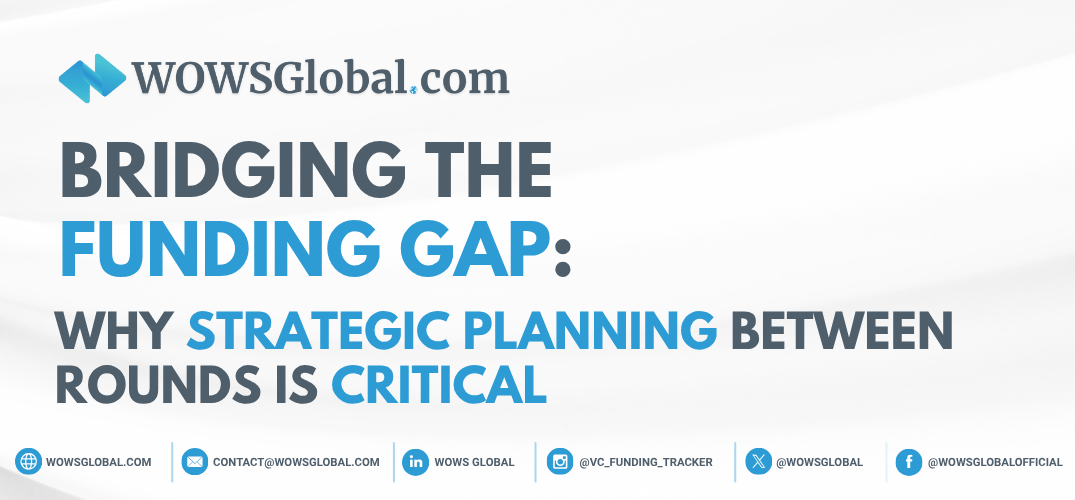Here Are 5 Different Types Of Investors And How They Can Meet Founders Needs
Angel Investors Investor Venture Capitalists Different Types of Investors

When it comes to establishing and growing your business, investors play a major role. It is the level and quality of investor involvement that can determine a startup's success or failure.
This makes it essential for founders to carry out research and to understand the different types of investors out there and what they offer.
To help you get a feel for startup investors here are 5 types that can meet a founder's needs:
Family and Friends
When it comes to seeking an investment that will get your business up and running these personal investors are often a founders' first port of call. They consist of family members, friends, close acquaintances, and a founder's savings.
The reason family and friends are good for initial investment is because they will have belief and faith in you. This can make it far easier for founders to convince these people to invest in what is essentially an idea. More importantly, they will be investing in you.
This is quite the opposite for the professional types of investors listed below. After all, at the beginning of your startup journey, there will be very little hard evidence or any proof of a successful business concept.
It is those factors and other ingredients that founders will need to show if they are to persuade the more professional type of investor to part with funds.
A more informal investment type but formalities should still be followed
Founders should not expect large sums of money from this type of investor. This generally ranges between $5,000 and $150,000.
It is clear that there will be intimate and personal relationships between founders and this type of investor. It can also be tempting to accept investment from family and friends without putting in place the corporate formalities that other types of institutional investors require. Founders should NOT take that approach.
Even when funds come from those who are close to you it is wise to carefully document each investment. Here are 3 reasons why:
- It will help avoid any future conflicts.
- It will ensure you are creating a correct foundation for future investment.
- It could be useful if you need to go back to these sources for further investment.
Accelerators & Incubators
Accelerators and Incubators can both be great ways to grow an early-stage startup. They both provide founders with good opportunities and assistance that are aimed at rapidly growing their businesses. Another significant benefit comes from increased chances of attracting an established VC (Venture Capital) firm to invest in your startup at a later point.
While accelerators and incubators are often mentioned together there are differences in each type of program. This means that founders should understand what each one involves before deciding which (if any) is most appropriate for their business.
As the term suggests, Accelerators “accelerate” the growth of an existing company. As for incubators, these “incubate'' disruptive ideas with the aim being to build out a business model and company. Put another way, accelerators focus on scaling a business - Incubators are most often focused on innovation.
While most people associate both types of programs with tech startups, founders will find that many of them will consider companies from a wide range of business sectors.
If you are accepted into either of these programs the funding received can range between $10,000 and $120,000. This will be classed as seed money. The intended use of this funding is to cultivate and develop your startup idea as well as to gain traction.
In return for this funding, you will be giving up a percentage of your business. But on the plus side, you are benefiting from expert advice, knowledge, and resources. Should your startup show the expected potential you will have the opportunity to pitch to larger investors and be given introductions to additional funding sources. It is this sort of leverage that can help take your business to the next level.
One thing founders do need to bear in mind before committing to either program is that they are quite intense. This is because they are aimed at speeding you along to your next growth stage.
Angel Investors & Angel Groups
Angel investors are classed as wealthy individuals who look to invest in startups. They generally step in to help founders bridge the gap between a friends and family round of funding and Series Seed or Series A funding rounds.
They are found across all industries and while there may not be a personal relationship with the founder they are motivated by receiving returns on their investments. But that is not all, as well as providing funding to founders, angel investors are ready to give knowledgeable advice and support.
An angel investor may also be more flexible in the investment terms offered and many offer high value when it comes to wisdom and their connections. Angel investors are often seen as mentors or coaches to budding founders.
As for angel groups, these are on the increase. They are becoming more popular and more organized. They are groups of angel investors who join together to make investments in startups. This allows them to invest with more confidence. The benefits of such a union come in larger check sizes but lower risk exposure.
Angel investors tend to look for companies that are beyond the earliest stages of formation and have already built a product. Typical investment sums can range between $100,000 and $2 million.
If you can secure funding from an angel investor it brings many benefits. Not least because it increases your startup’s valuation before you seek follow on funding from future rounds.
VCs - Venture Capitalists
Many class VCs as the holy grail of investors for founders looking to raise significant funds. This is because they come with the largest checks, the power to fuel success, and can give essential leverage that will help your startup gain a greater market share.
While it is still the case that many VCs only enter the funding scene when a startup is showing a significant amount of traction/ revenue, this is changing.
Traditionally VCs were most likely to show interest in startups looking to secure funds during Series A, B, and C rounds. However, more VCs than ever before are considering and participating in earlier funding rounds.
It can be the case that VCs will be prepared to invest up to $10-$15 million in seed funding. While the sort of sums offered by VCs is very attractive, founders must be prepared to give something up in return.
This is commonly seen through VCs taking an equity stake in your company. Other methods of gaining their ROI (Return On Investment) can come through “carried interest”, or a percentage received as compensation from hedge fund profits
If credibility and visibility for your startup is the goal, choosing the right VC offer will go a long way to helping you achieve that.
Banks & Government Agencies
Banks and government agencies differ from the other 4 types of investors mentioned. This is because they are not classed as true investors. Even so, they should be viewed as a potentially important source for founders who are looking to secure funding.
Banks are seen as a classic source for offering business loans. They are also good for such things as business credit cards, merchant advance loans, and lines of credit.
However, there is a potential stumbling block. To secure a bank business loan or other services a founder will be required to produce proof of collateral or a proven revenue stream before having a loan application approved. Because of the more stringent rules of acceptance, banks are often seen as being a better option for businesses that are more established.
As for government programs, founders should also look into these. They are tailored to provide grants for certain types of projects. This should not be viewed as an easy option to secure funds and if they are given there will be a strict repayment timescale put in place.
Many startups will find positives and negatives in taking this type of loan. On the plus side securing government funding means you do not have to give up equity in your company. On the potential downside, there are two significant factors to bear in mind:
- The strict timescales imposed can have an impact on your profitability. If it does, that could well work against you when trying to raise additional funds from other investor types.
- Many government programs come with limitations and restrictions as to what the loaned money can and cannot be used for. This means that founders should carefully review and understand what those expectations are.
Assistance In Choosing The Best Type Of Investor Is Crucial
As with any investment offered, founders need to be cautious before accepting funding. Misunderstanding terms and not being fully aware of what you are committing to can be disastrous in the longer term.
This is where WOWS Global comes in. Our highly experienced team is firmly established in the startup world. We are fully aware of every investment vehicle available to startups. This will differ depending on the business arena you are operating in and your current stage of growth.
Once we fully understand your business and future goals we will help you target the appropriate investment type that best fits your needs.
By partnering with WOWS Global you will have full access to our state-of-the-art digital ecosystem. This secure online platform offers everything a startup needs in one place.
We also provide startups with a key differentiator. This is through the exclusive WOWS Global investor access program that gives us the ability to match and bring together like-minded startups and investors for mutual benefit.
While digitalization and due diligence are at the heart of our operations, WOWS also offers that personal touch. Our team of experts is ready to discuss your investment needs. From there we will advise on how to secure that much-needed funding to take you and your business to the next level.
Any founder who is keen to find out more should reach out to us at:
Related Posts
-

Fundraising 409A Valuation Cap Table Management Investor
WTF Is 409A and Why Should I Care?
Learn what a 409A valuation is, why it matters for employee stock options and how it impacts founders, investors, taxes and diligence, plus how WOWS Global can help. -

Investor Due Diligence Readiness Virtual Data Room Founder
Data Room Done Right: A Founder’s 30-Item Investor Readiness Checklist
Investors don’t fund mysteries. This Seed–Series A checklist shows exactly what to include, governance, product, metrics, financials, security, and round mechanics, so diligence speeds up, not stalls. Need help? WOWS Global can review and structure your data room. -

Exit Strategy M&A readiness Cap Table Startup Exits Investor
Planning the Finish Line: Why Every Business Needs an Exit Strategy
Launch matters, but exits set the score. Learn how early planning, clean governance, and buyer mapping turn hard-won growth into the best possible outcome. -

Venture Debt Finance AI Investor
Bridging the Funding Gap: Why Strategic Planning Between Rounds Is Critical
Between funding rounds is where the real work begins. Strategic planning during this quiet phase can determine how ready your startup is for the next big raise. From fractional CFOs to venture debt and investor engagement, WOWS Global helps you stay prepared and in control. -

Early-Stage Investors Funding Funding Round Fundraising for Founders Investor
Shh! Don’t Share These Fundraising Insider Secrets
Startup founders need to fasten their seatbelts and prepare for a roller-coaster ride if they are to achieve success. It is a straight fact that founders will find themselves wearing many hats to get their venture up, running, and thriving. -

Angel Investors
Angel Investors: Empowering Entrepreneurs with Wings of Opportunity
In the dynamic landscape of startup ventures, angel investors play a crucial role in fostering innovation and driving economic growth. Their financial support and expertise provide aspiring entrepreneurs with the wings they need to transform their ideas into successful businesses. In this article, we will explore the concept of angel investors, their significance in the startup ecosystem, and the key attributes that define their role. Additionally, we will discuss how entrepreneurs can attract angel investors and the benefits that result from this partnership.
